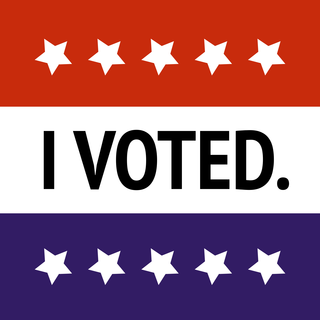
Career
Words Kill Trust at Work, Too!
7 ways casual speak fuels distrust at work
Posted November 11, 2016
No matter whom you voted for or what you think or feel about the outcome, the election of the 45th President of the United States made one thing clear -- trust lost.
Trust was already diminished in strength, at historic lows, perceived as naïve by some, and a failed leadership strategy by others before the election started. But caustic rancor and hate-filled words of the expanded months of this presidential cycle, put trust in the Intensive Care Unit with the unlikely probability of revival or survival any time soon.
The societal trust impact of those election words carries into our workplaces, schools, and communities, too. When women are reduced to body parts and that's tolerated or encouraged as "just boy talk," workplaces across this country suffer diminished trust between genders even if those words aren't spoken in that environment.
As a woman, how do you know what's said in that proverbial locker room won't reduce the chances of a fair playing field of success? Add disparaging comments related to disability, ethnicity, religious affiliation, educational or economic status to that mix and we've increased labels and distrust.

Labels divide, reinforcing differences and building "identification-based distrust," according to researchers. Labels make it harder to trust someone who doesn't come under "our label;" who isn't like us, or doesn't look like us. Labels make us democrats, republicans, independents, progressives, or conservatives -- not Americans; management, staff, millennials, women, men, white or non-white -- not people.
Words matter. There is a reason for careful word choice and political correctness; a reason for alignment between words and actions; a reason for thoughtful transparency and elevated, best-of-self communication.
That reason is simple: words build psychological connection and can profoundly impact us. Words create impressions, images, and expectations. They influence how we think about ourselves, our coworkers, friends, family, neighbors, and leaders; they inspire or deflate, enable or diminish; bring us together or divide us. Words impact trust or distrust.
Trust diminishing words fuel distrust; trust enhancing words do the opposite. Call someone an idiot or a road-block and you'll have a different reaction to them than if you call them a detail-oriented colleague. Road blocks stop us; colleagues don't have to.
The childhood taunt -- "Sticks and stones can break my bones, but words can never hurt me" -- is wrong. Words are tools for building up or tearing down; for enabling mutually beneficial outcomes, or winner take all competition. While actions do speak louder than words, words provide the background for how actions are judged. They even provide glimpses into our thoughts and character.
Misguided casual speak, deliberately caustic words, or words designed to manipulate, all fuel distrust, disengagement, and disconnection. At work, casual speak, while often unintentional, is a big contributor that fuels distrust. Here are 7 common ways:
- We don't listen to ourselves enough to align our actions with our words
- We don't take our own words seriously while those we talk to do.
- We throw out commitments with no plan or intention of meeting them.
- We talk in wishful promises without the desire or ability to turn them into reality.
- We commit what we can't control.
- We have good intentions but not the resources to make what we say happen.
- We say what we think people want us to say or what will increase our influence: e.g. employees are our most important asset, but we know it's not really true.
There are those who are fine that trust is in the ICU and struggling for survival in our society. But for those who want higher engagement, real dialogue, creativity, innovation, teamwork, inclusion, and great results at work and in the communities we share, this critical state of diminishing health is alarming.
Still, the good news is trust is a local issue. Just because the world is swirling around you with distrust, doesn't mean you have to follow its lead. You can make trust where you are, in the role you have, in the work you do, and with the people around you. And a place to start is with your own words.
More tips about how to make and operate with trust at work:
- What Don't We Trust Each Other More?
- What Does Trust "Look Like" at work?
- Three Fundamental Rules of Trust
- 15 Communication Mistakes that Can Diminish Trust
You'll find more tips and how-tos in my book: Trust, Inc.: How to Create a Business Culture That Will Ignite Passion, Engagement, and Innovation

